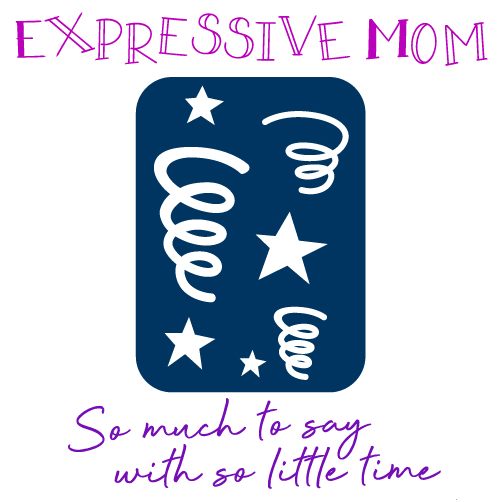 Image courtesy of Stuart Miles at FreeDigitalPhotos.net
Image courtesy of Stuart Miles at FreeDigitalPhotos.net
A life altering traumatic day can be defined as learning that someone who you love has suddenly passed away, especially if he or she was healthy; or getting into a serious accident regardless of whether or not you will be 100% recovered, or discovering that your house had been destroyed by a hurricane, or being told by your doctor that you have cancer. You get the idea. These traumatic examples will lead to the stages of grief. I also want to throw in there that if your child’s pediatrician tells you that your child has autism or some other disability- that is also a life altering traumatic day for parents.
Many parents would have had dreams for their children, as well as for themselves prior to the diagnosis. The day that you are told that your child has a disability, those dreams that you had for your child will end up changing drastically. Especially if you dreamed about your child hitting typical milestones like going to parties, dating, driving a car, graduating high school, going to university or college, moving out and getting married, getting a job, etc. Now, at the same time, those things could still end up happening. However, if your child with a disability does hit any of those milestones, it will likely happen quite differently than you would have even imagined- meaning you are going to have to adjust a lot of your expectations. A lot of work, therapy, costs, time and patience will help push them towards them too. In other words, in order help your child with autism or any other disability hit those milestones, you are going to have to make a lot of sacrifices. Sacrifices that parents of typically developing children don’t have to make, and that makes digesting the diagnosis a lot more difficult. Let me elaborate more on this later, and I want to share with you how it was for me when I found out that my son Jordan had autism, and later on severe ADHD.
As a baby, he did not develop typically. Jordan did smile occasionally, but he was not curious like most babies are. I just figured that was how he was and nothing more. The pediatrician also wasn’t alarmed at that point. However, when he was close to 3 and still not talking, throwing violent tantrums, watched spinning objects obsessively and getting lost in them, and not interacting, it was time to face the reality that something was seriously up. I had his hearing tested and nothing was wrong. Then the dreaded diagnosis came, that he had autism. This happened in 2007, and that was one of the worst times of my life. I am warning you, this is going to be raw but I feel I need to be honest. This may trigger judgement but I can’t worry about that. I still find it therapeutic to write about- not to mention, if I can reach out to someone who is going through what I went through back years ago, then all the better. This is not a time to be alone while going through it.
I had lost a tonne of weight a year before that, and then I slipped into such a dark place, put it back on in no time- and then some. I retreated into my own dark world and got lost in a swamp of self pity and stayed there for a very long time. I had grim visions of me being close to 60 years old and changing his diapers at age 30. Previously, I had plans to travel once the kids were out, and believed I had to give that up to take care of my autistic son for the rest of his life. I had no respite, and family members told me that getting a babysitter was a bad idea because it would create more anxiety for my son. Nevermind that I needed the respite more than anything. I dwelled on my painful past of being bullied back in junior high and even went as far as sending harassing messages to my former bullies on Facebook and on other platforms. Of course they were ignored, and I am sure they thought was I cuckoo based on the messages I sent. I envisioned them living the best lives, free of autism, traveling, doing all the things I wanted. I was seething with resentment and jealousy towards those who had typical kids and did not have the same challenges I had. I believed everyone’s lives were perfect but mine. I did not want to see my brother and my typically developing nephews. It was all poor me, poor me, what have I done to deserve this. I ended up having to go on antidepressants and went to a psychologist who really did not help. And I seriously wondered if I was Hitler in my previous life at that time. I also had low self esteem to begin with, so I felt that giving birth to a child with a disability was proof that I was defective. I was in a seriously dark place then. However, at the same time, even though I was riddled with the victim attitude, self pity and depression, I got my son into ABA right away, and got him the therapies he needed, and he was starting to make progress even though it was slow.
The grieving process went on for quite some time, and even though now I have reached acceptance, I still have moments where I teeter tauter into old feelings. Triggers are seeing 10 year old typical boys having mature conversations, or doing things that my son is not able to do. However, I have evolved even with these emotions. Even with these feelings of envy in those situations, I don’t wish ill, because I admit at that time I did. I was so full of hate and anger back then, it is embarrassing to think about now- however I shouldn’t be because I believed I HAD to go through those dark and negative emotions in order to reach a place of acceptance. Everyone who receives devastating news that will trigger grief has to go through these emotions. So if you are a parent who was just told that your child has autism or any other disability and are feeling the same way- I am going to tell you right now, you cannot fight whatever emotion you are feeling. It is a process you need to go through and you must honor that. Because if you don’t, and resist it, and hate yourself for it, acceptance in the end will be more difficult to achieve.
In addition to being in a very dark place, I was extremely vulnerable back then. I even consulted a psychic who told me not only would my son be great, but he would develop his own company and become a millionaire. He also said I would become a best selling author and become a millionaire myself lol. Well I believed it because it was a comfortable fantasy for me. Of course that never happened (oh and I was very crushed which made things even worse). And even though I know to never set the bar too low for my son, I am realistic about what is likely going to be in store for him. Can I really predict? No, no one can predict the future but I am 99% certain he will not be 100% independent. That also is very difficult to accept, but in the end, you have no choice but to- and at the same time, focus on strengths and be realistically positive.
So now I will tell you how you can reach acceptance, if you feel you are ready for that.
Let go of your previous dreams for your child. – As I said before, you never want to give up on your child or set the bar too low. However, if your child has a disability like autism- he or she will never outgrow it no matter how much intervention or therapy he or she receives. It will impact your child lifelong. This is going to be a difficult thing to do, but in order to be at peace it is absolutely necessary. He or she may even surprise you and exceed your expectations. However, be prepared that it may not happen either. Either way, let go of your previous dreams for your child because if you keep holding onto it, it will keep you in a place of darkness. You will also call your child a failure when you see that he or she is not able to reach the dream you had envisioned, and that can be quite damaging in so many ways.
Celebrate the progress your child makes– If your child with autism asks you how your are doing for the first time at 12, celebrate this milestone. Don’t mourn that he or she did not ask you that when he or she was 7. Accept the fact that your child with a disability is going to take longer to hit milestones.
Seek support groups– No matter how alone you may feel, you are not! Lots of parents are facing the same challenges. Look for online support groups, and even offline ones too. Meeting others in the same shoes as you will help. You will feel less alone, and they will also feel like someone understands them.
Look for organizations that will provide help and support– If you don’t think there is anything out there to provide assistance, you are wrong. You may be looking at some wait lists, but there are many organizations that provide funding, in home help, and support groups not just for parents but for siblings of children with disabilities. There is stuff out there, you just need to look.
Become as informed as you can– Arm yourself with information on autism or any other disability that your child has. That is the best way you can become your child’s advocate. Not to mention, if you are worried about ignorant attitudes from others, at least you can be in a position to educate them.
Don’t ever believe just because your child has a disability, he or she will never leave the nest– I have to say this was a huge fear of mine for a long time, and at the same token I also hated the idea of my child ending up in a group home. However, I had to also face the reality that it is unlikely my son will be on his own 100% – and if I did not want my son staying with me and my husband forever, he would need assisted living of some sort. I was also happy to learn that group homes in this day and age are not necessarily defined as institutions. The difference is that when a typically developing adult child is ready to leave the nest, he or she does it naturally by getting a job and moving into an apartment- or moves in with a partner. When it comes to your adult child with a disability leaving the nest, sometimes he or she would be ready. However, many times the child needs a push and you have to be the one to help make the transition. A lot of parents are horrified by the wait lists for group homes and assisted living facilities. However, who says that you need to rely on the government? Sometimes you will have to take matters into your own hands and team up with other parents with children that are similar to yours. Pitch in for a home for them, and social workers will help them manage their affairs. You can either raise the money through a crowdfunding campaign, or set aside the money when your child is young and put it into a tax free mutual fund. In fact, a social worker once told me that it is natural for every child to leave the nest as an adult- even those who have disabilities. You just have to adjust your expectations on how it will be done, that is all. Make sure your child has applied for disability before his or her 18th birthday just in case he or she cannot get or keep a job. You need to plan for every scenario. You will want to read my article that covers this topic specifically What is Going to Happen to my Child with Autism when he Grows up? Not to mention, if your adult child with autism or any other disability has not left your home- it will impede his or her development, create further undesirable behaviors and hurt self esteem. Not to mention, it will make you very resentful. And if you are still caring for your adult child with autism, their typical siblings will be dreading the day that they will have to care for them once you are unable to do so. Think of that too. If you have plans to go and travel, the good news is, you can keep your dreams of doing that. If you are financially drained, you will have the time to build a business or even a crowdfunding campaign. Get creative, take care of yourself and live your dreams.
Get respite!– Go find a babysitter who is able to handle children with various disabilities, or contact autism support organizations to give you leads on respite services. They are around and it is essential for your sanity. Take advantage of it.
Practice gratitude– I resisted this piece of advice someone had told me, and when you are in a dark place of grief, you are not going to find anything to be thankful for. However, when you are ready to reach a place of acceptance, being grateful for the good in your life will make the process a lot easier. Find 5 things to be grateful for each day, whatever it may be. I have to say this has helped me so much.
These are some tips to help you reach acceptance. And you also need to accept that your life will never be easy when it comes to raising a child with a disability. Aspects of it may become better, but life will not be easy. You will also need to adopt the warrior mind, when you are ready. Believe that you will be ok, as long as you plan as much as you can. You will have to adjust your dreams and expectations for your child, but you CAN keep the dreams you had for yourself and spouse after your children leave the nest!



Hi! Do you use Twitter? I’d like to follow you if that would be ok. I’m absolutely enjoying your blog and look forward to new updates.
Follow on @AnExpressiveMom